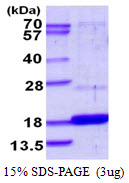Login
Registration enables users to use special features of this website, such as past
order histories, retained contact details for faster checkout, review submissions, and special promotions.
order histories, retained contact details for faster checkout, review submissions, and special promotions.
Forgot password?
Registration enables users to use special features of this website, such as past
order histories, retained contact details for faster checkout, review submissions, and special promotions.
order histories, retained contact details for faster checkout, review submissions, and special promotions.
Quick Order
Products
Antibodies
ELISA and Assay Kits
Research Areas
Infectious Disease
Resources
Purchasing
Reference Material
Contact Us
Locations
Orders Processing,
Shipping & Receiving,
Warehouse
2 Shaker Rd Suites
B001/B101
Shirley, MA 01464
Production Lab
Floor 6, Suite 620
20700 44th Avenue W
Lynnwood, WA 98036
Telephone Numbers
Tel: +1 (206) 374-1102
Fax: +1 (206) 577-4565
Contact Us
Additional Contact Details
Login
Registration enables users to use special features of this website, such as past
order histories, retained contact details for faster checkout, review submissions, and special promotions.
order histories, retained contact details for faster checkout, review submissions, and special promotions.
Forgot password?
Registration enables users to use special features of this website, such as past
order histories, retained contact details for faster checkout, review submissions, and special promotions.
order histories, retained contact details for faster checkout, review submissions, and special promotions.
Quick Order
| Catalog Number | Size | Price |
|---|---|---|
| LS-G1516-10 | 10 µg | $276 |
| LS-G1516-50 | 50 µg (1 mg/ml) | $411 |
| LS-G1516-250 | 250 µg (1 mg/ml) | $985 |

Human DUSP23 Protein (Recombinant His) - LS-G1516
Human DUSP23 Protein (Recombinant His) - LS-G1516
Description:
DUSP23 Protein LS-G1516 is a Recombinant Human DUSP23 produced in E. coli with His tag(s). For Research Use Only
Toll Free North America
 206-374-1102
206-374-1102
For Research Use Only
Overview
Description:
DUSP23 Protein LS-G1516 is a Recombinant Human DUSP23 produced in E. coli with His tag(s). For Research Use Only
Specifications
Type
Recombinant Protein
Target
DUSP23
Synonyms
DUSP23 | DUSP25 | LDP3 | LDP-3 | RP11-190A12.1 | MOSP | VH1-like phosphatase Z | VHZ | VH1-like member Z
Species
Human
Modifications
Unmodified
Conjugations
Unconjugated
Tag
His
AA Sequence
MGSSHHHHHHSSGLVPRGSHMGVQPPNFSWVLPGRLAGLALPRLPAHYQFLLDLGVRHLVSLTERGPPHSDSCPGLTLHRLRIPDFCPPAPDQIDRFVQIVDEANARGEAVGVHCALGFGRTGTMLACYLVKERGLAAGDAIAEIRRLRPGSIETYEQEKAVFQFYQRTK
Expression System
E. coli
Source Species
E. coli
Purification
Greater than 90% by SDS-PAGE
Bio-Activity
Not Tested
Endotoxin
Not Tested
Presentation
20 mM Tris-HCl, pH 8.0, 100 mM NaCl, 2 mM DTT, 10% Glycerol
Storage
Short term: store at 2°C to 8°C for up to 1 week. Long term: aliquot and store at -20°C to -80°C. Avoid freeze-thaw cycles.
Restrictions
For research use only. Intended for use by laboratory professionals.
About DUSP23
Publications (0)
Customer Reviews (0)
Images
Sodium Dodecyl Sulfate - Polyacrylamide Gel Electrophoresis

Sodium Dodecyl Sulfate - Polyacrylamide Gel Electrophoresis

Sodium Dodecyl Sulfate - Polyacrylamide Gel Electrophoresis

Sodium Dodecyl Sulfate - Polyacrylamide Gel Electrophoresis

Request SDS/MSDS
To request an SDS/MSDS form for this product, please contact our Technical Support department at:
Technical.Support@LSBio.com
Requested From: United States
Date Requested: 4/26/2024
Date Requested: 4/26/2024









